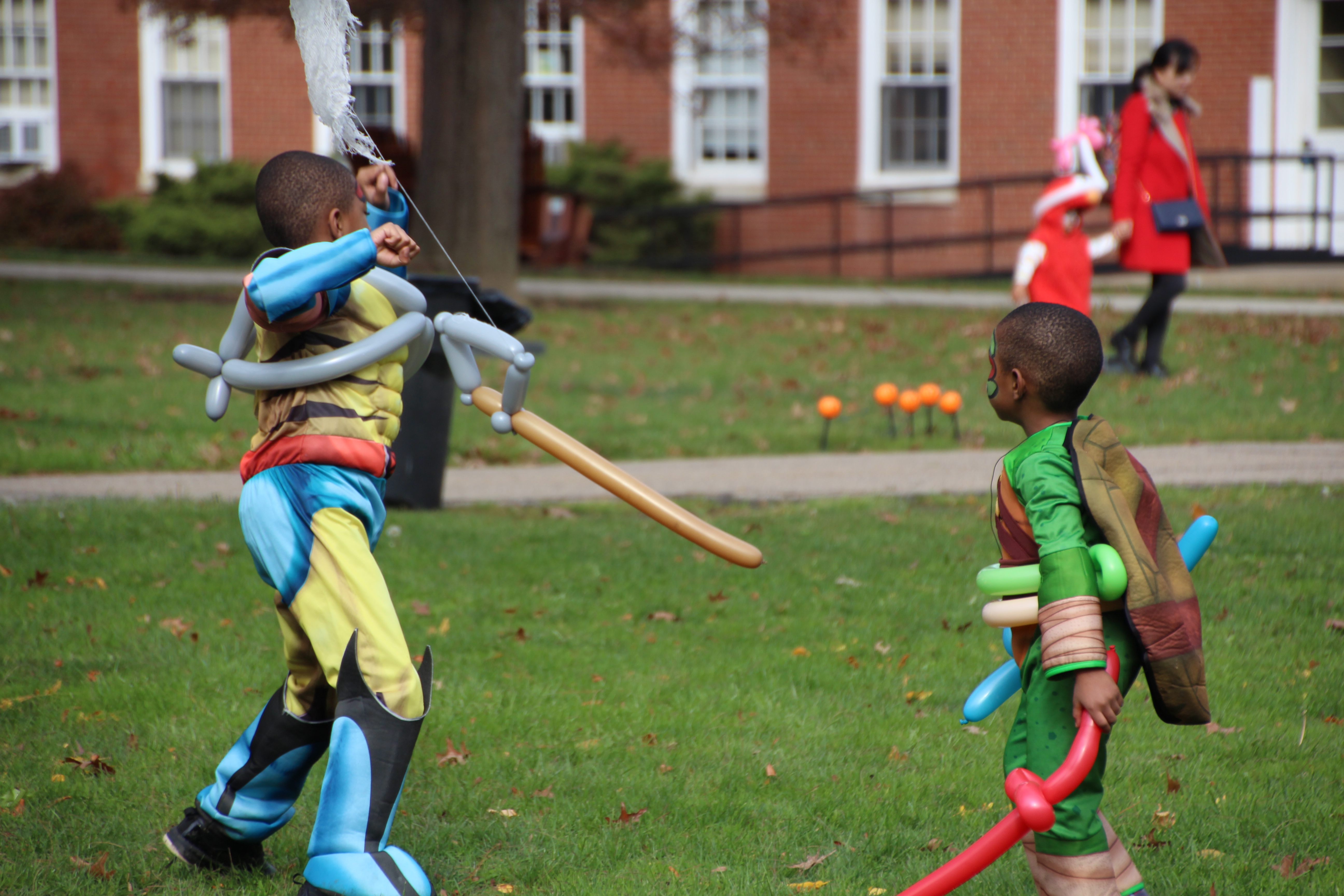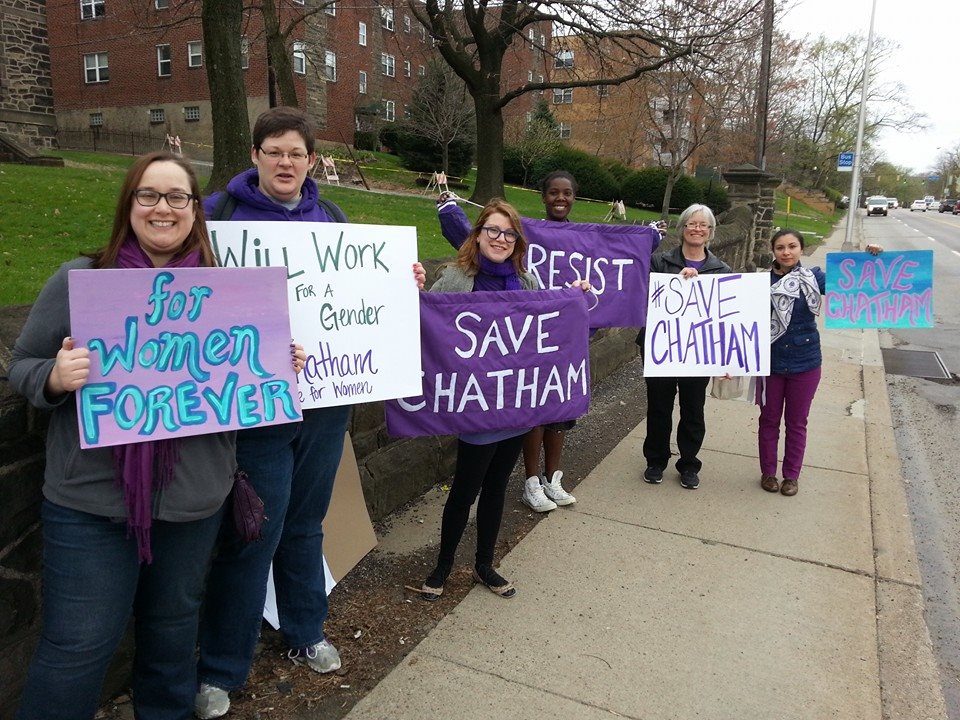As February comes to a close, Chatham students can’t help but notice the lack of events celebrating Black History Month.
The month stems from “Negro History Week” that took place in the second week of February, to include the birthday of Abraham Lincoln and Fredrick Douglass. It was created in 1926 by Carter G. Woodson, a black historian, and the Association for the Study of Negro Life and History. Black community’s in 1940’s West Virginia began celebrating the full month, but it wasn’t until after the events of the 1960’s that the association was asked to officially make it a full celebratory month. In 1976, fifty years after the first celebration, the Association used its influence to institutionalize the shifts from Negro History week to Black History Month.*
Forty years later as Black History Month for 2016 rolls around again, students on Chatham’s campus have begun to question where the celebratory events are. Last school year, Step Afrika! was brought to the campus and there were tickets available to students for the annual Steel City Step Show, a celebration put on by Pitt to recognize historically black Greek letter organizations in Pittsburgh. The year before that, Zapology, a reggae singer, came. Even in the 90’s, legendary leaders such as Coretta Scott King came and spoke in the chapel.
This year has seen a campaign for #blacklivesmatter where students, faculty, and staff were able to give a quote and a photograph that would be put on a poster, online, and around campus. The campaign was also accompanied by the “All Lives Matter vs. Black Lives Matter” discussion being held Monday the 29th.
Chatham’s campaign is in response to the Hashtag movement started in 2013 by Alicia Garza, Patrisse Cullors, and Opal Tometi after the acquittal of George Zimmerman in the fatal shooting of Trayvon Martin. The movement picked up again in the summer of 2015 as it became more of a political statement.
Some students of color on campus are concerned that the campaign is turning the hashtag into a fad, and is silencing the work and meaning behind the statement.
Odera Igwe, a black sophomore student, believes that the #blacklivesmatter campaign on campus was started “too late and with extreme hesitance” and lacked education about the movement’s origins.
“Yes, this movement is still happening. However, because of the hesitation, there was no ‘hype.’ It was just thrown together.” Said Igwe. “I still appreciate that it was done, whether it was in honor of black history month or not, but I believe that there should have been a more timely response to [Black Lives Matter] just like anything else that happens in the world and [off] campus. I think because it was so nonchalantly put together, [fewer] people cared, and that is the opposite of what we want.”
Last Week, the Black Student Union (BSU) put on “BSU Week.” It was kicked off with a dinner in Anderson, consisted of deep conversations about privilege and the experience at Chatham for black students, and concluded with the traditional BSU showcase. BSU collaborated with Pyramid Pittsburgh for the final event, which is described as an artistic celebration showcasing black creativity, history, nowstory, pride, peace, and love. All the events were open to the community and had diverse audiences.
However, at the Real Talk about privilege earlier that week, one white student even commented on the limited attendance of Chatham students, especially the students who make up the Predominately White Institution (PWI) that Chatham is.
When asked about the presence of Black History Month on Chatham’s campus, BSU president Lauren Brown said, “For all the years that I’ve been here, if BSU was not around, nothing would be done to celebrate African American History Month.” She went on to say that she can’t recall any dinners, performances, or events put together around Black History Month.
“There’s always something for Hispanic heritage month. They have the churros. Or [for] the Chinese New Year they had a nice lunch at Anderson, as well as [for] Mardi Gras.” Brown continued, “When it comes to African American History Month, if there were no black students here to really mobilize [and] throw any type of event, [there would not be an event] and that really makes me feel some type of way. I feel like there’s a lack of support for African Americans here on Chatham’s campus.”
Brown says she received a message from a friend who was given the opportunity to ask Chatham’s own president, Esther Barazzone, how she was supporting African Americans and other minorities. Brown called the president’s answer a “shame.”
“All she could say [was] ‘oh there’s a black student union, they do a really great job of throwing events’ and that was it. [President Barazzone] had nothing to say outside of that.”
It was also stated in the Real Talk that if the BSU hadn’t approached the dining hall about having the Black History dinner, the meal and the decorations hanging in Anderson that highlight people in black history would have been non-exist. For celebratory months such as Hispanic Heritage Month and Pacific Islander Month, it was mentioned that Student Affairs and Student Activities pulled together funds “without student input or involvement” leaving no excuses for lack of recognition for Black History Month.
Though Black History Month happens once a year, the support of students of color is expected to happen year round. In a time where there are debates on equity, white privilege, police brutality, and how much the lives of black people are valued, Chatham’s support of black students, or lack thereof, is telling.
For students who want to get more involved, BSU holds monthly Real Talks that are open to every race, ethnicity, and nationality. Lauren Brown, BSU president, says the goal is to help “kill curiosities” about black people and culture.
For more information about the Black Student Union and what can be done to show support, please email BSU president Lauren Brown at LBrown1@Chatham.edu .
*Credit given to Daryl Michael Scott for ASALH at www.asalh for black history information.



